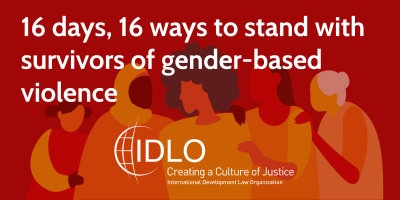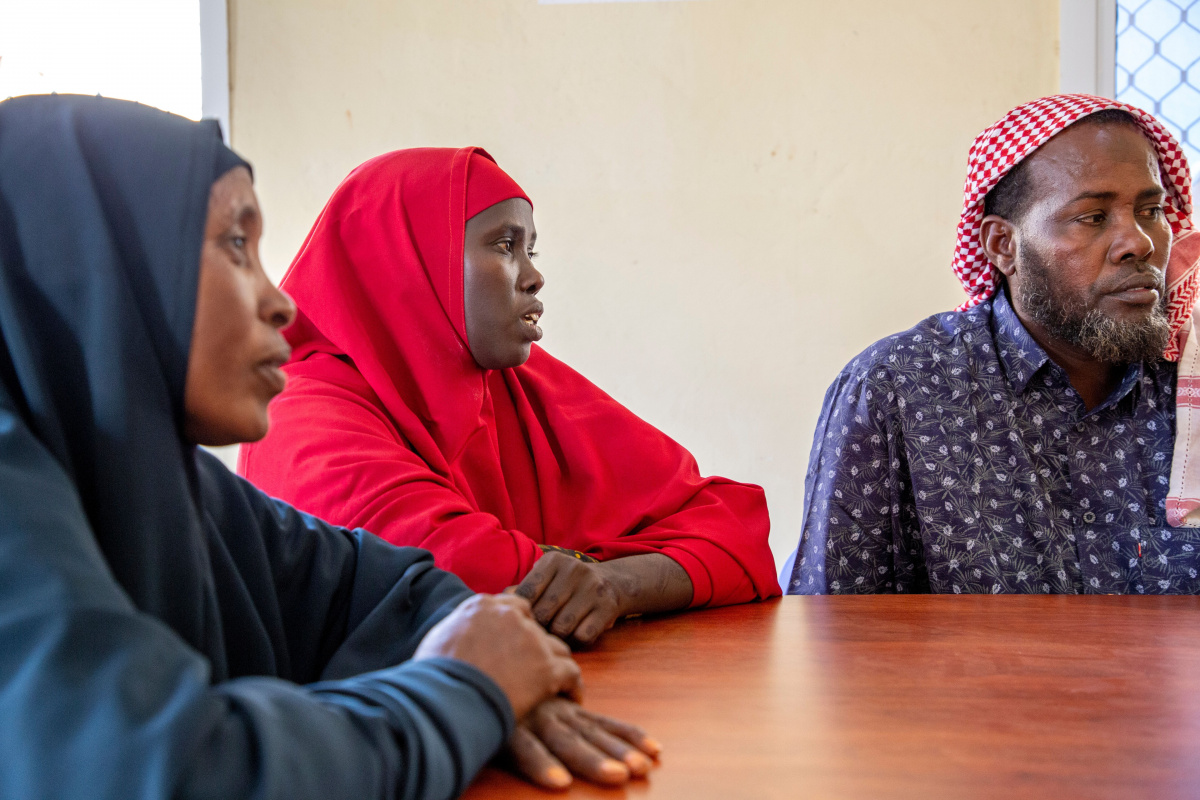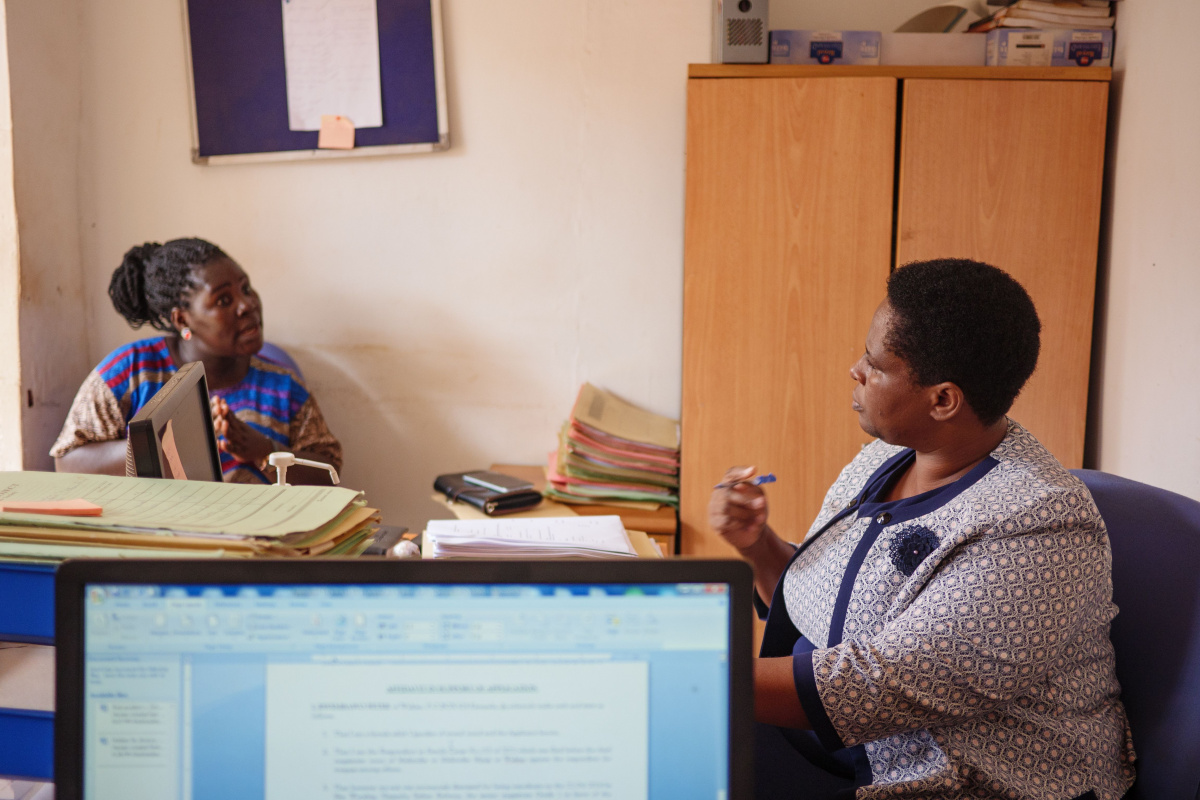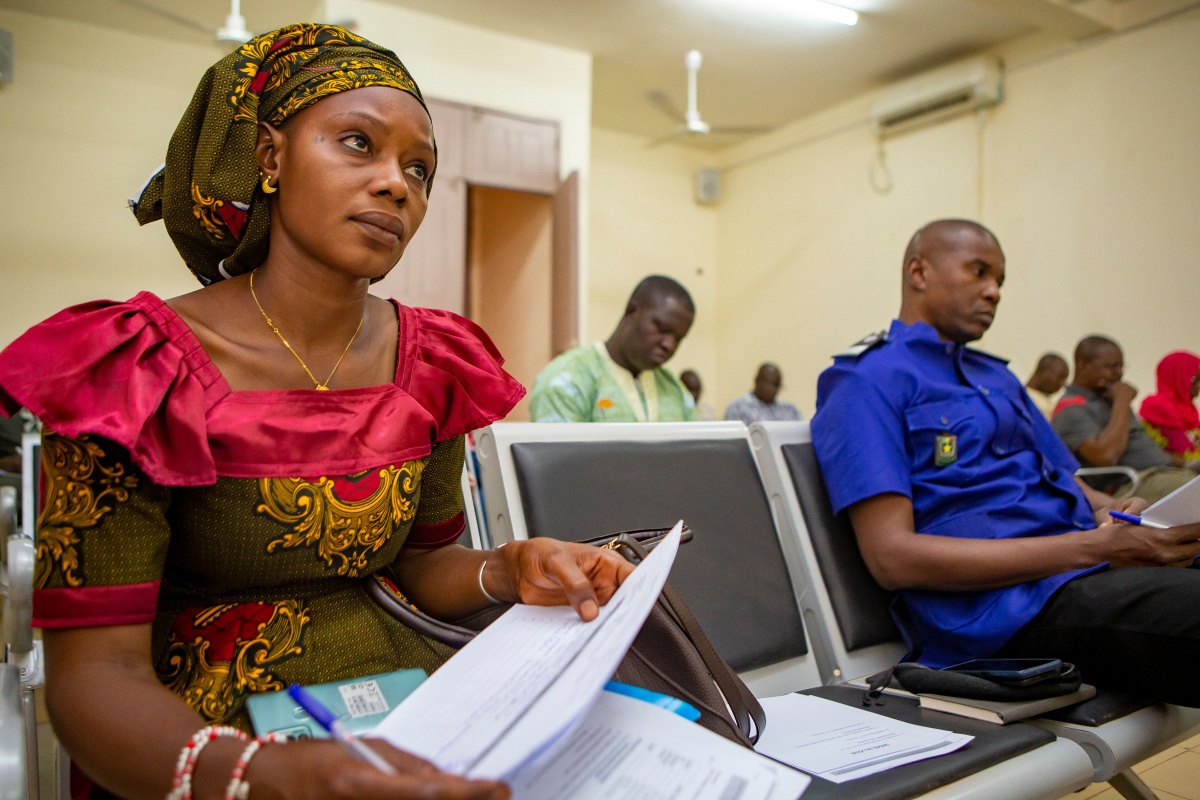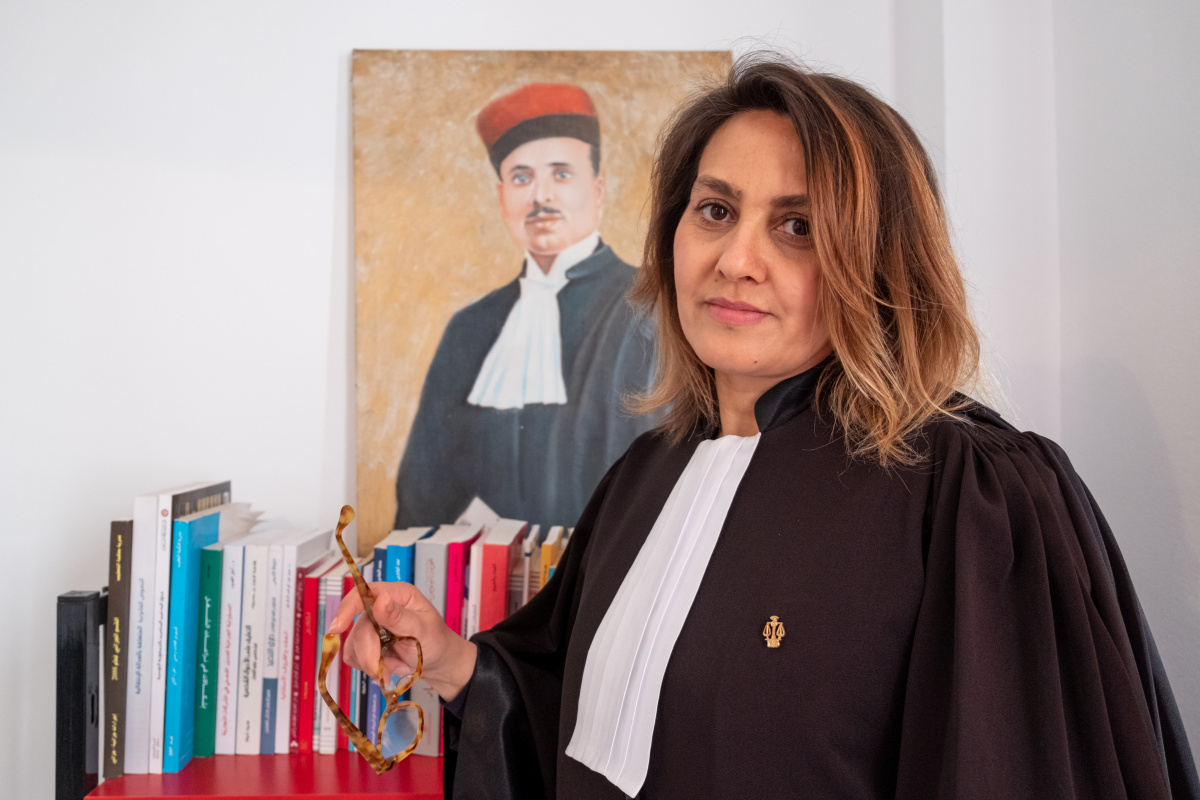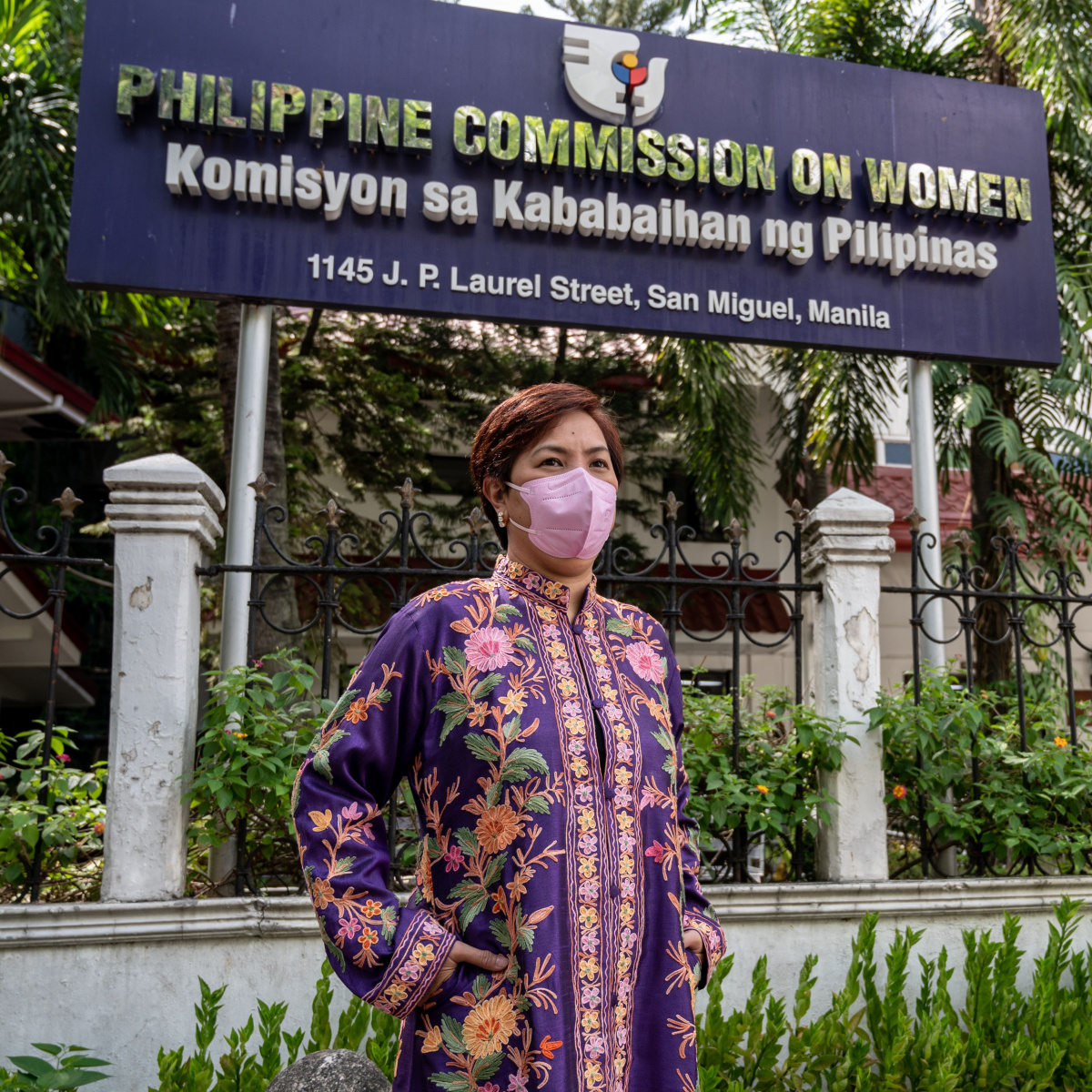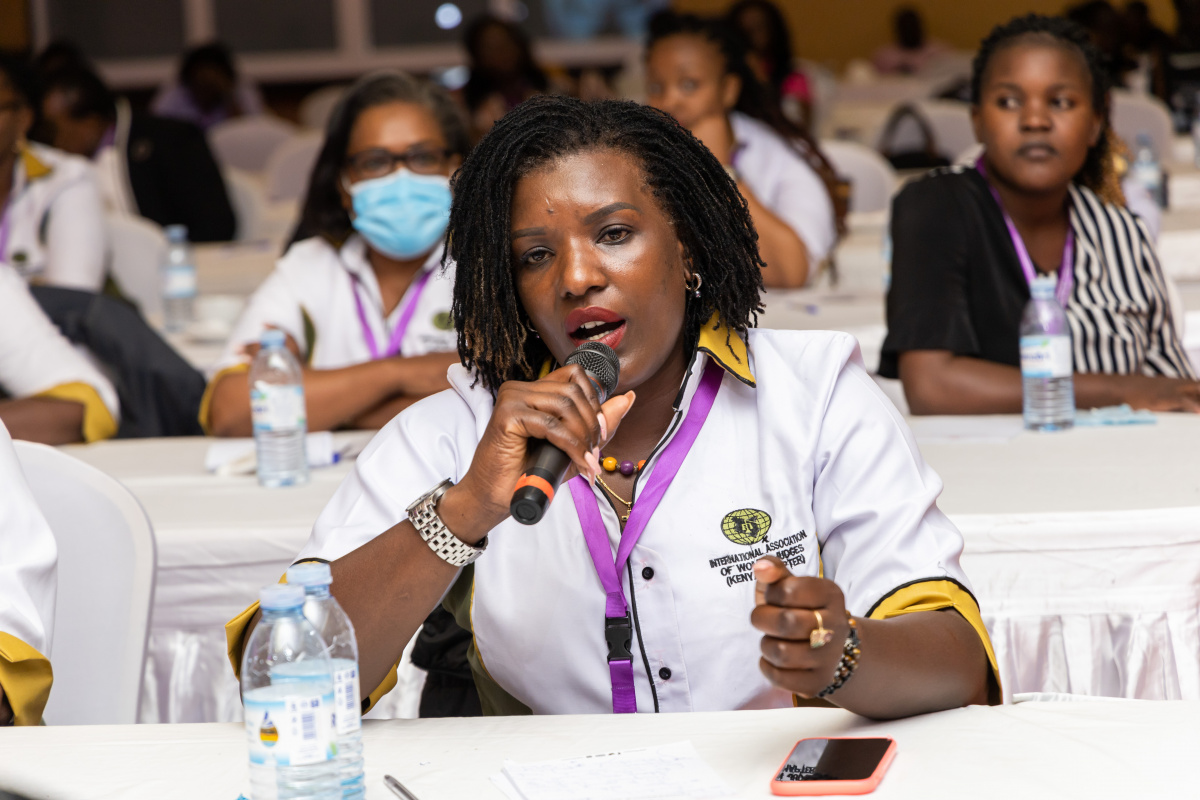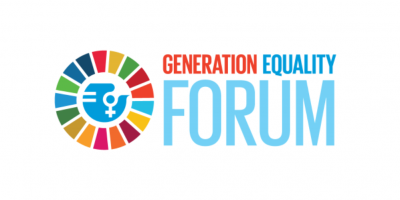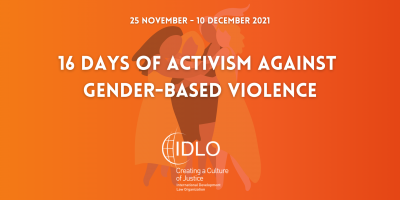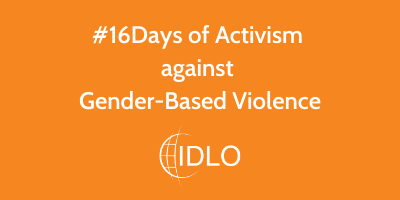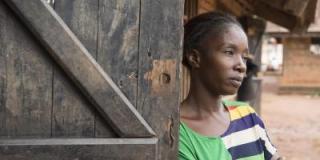Gender-based violence (GBV) against women and girls is a human rights violation. It is both a cause and consequence of gender inequality. GBV is globally prevalent, takes multiple forms and affects women throughout their life cycle, irrespective of income level or social status. In turn, gender inequality, as well as intersecting forms of discrimination – based on age, sexual orientation, gender identity, ethnicity, migrant or internally displaced person (IDP) status, health status, or other status – have a negative impact on women’s ability to report violence and access justice. The global average prevalence rates of violence against women have not changed in more than a decade. According to WHO data, across their lifetime, 1 in 3 women, around 736 million, are subjected to physical or sexual violence by an intimate partner or sexual violence from a non-partner. In humanitarian crisis contexts, in particular, seventy per cent of women are more likely to experience GBV. IDLO’s research shows that women and girls’ vulnerability to violence is exacerbated in complex contexts, such as conflict, organized crime, health emergencies and the climate crisis, where GBV is more common and more severe.
Combating gender-based violence is a key IDLO objective under its Strategic Plan 2021-2024. IDLO has been working around the world in countries, such as Afghanistan, Honduras, Kenya, Liberia, Mongolia, Mali, Somalia, Tunisia and Uganda, to combat gender-based violence, focusing on strengthening the capacity of justice sector institutions, both formal or informal, to respond to GBV; increasing women's legal empowerment to access justice and claim their rights; and combating discriminatory laws and ensuring the emergence of gender-responsive legal and institutional frameworks to address GBV.
As every year, IDLO joins the 16 Days of Activism against Gender-based Violence, an international campaign that kicks off on 25 November, the International Day for the Elimination of Violence against Women, and runs until 10 December, Human Rights Day. In support of the UNiTE campaign, which calls for a world free from GBV under this year’s theme “UNiTE! Activism to end violence against women and girls”, IDLO highlights 16 ways it stands with survivors of gender-based violence.
16 days, 16 ways to stand with survivors of gender-based violence
1. IDLO Director-General, Jan Beagle’s statement on International Day for the Elimination of Violence against Women

Gender equality is at the core of our work as the rule of law is a powerful tool to put an end to gender-based violence and build peaceful, just and inclusive societies. To this end, IDLO works to prevent and combat gender-based violence in diverse contexts, including in situations of conflict and fragility. At a global level, IDLO is a leading Commitment Maker to the Generation Equality Action Coalition on Gender-based Violence and has committed to mobilizing at least $10 million by 2026 to support justice actors, including women’s organizations, in implementing preventive measures, strengthening the investigation, prosecution and adjudication of offenses against women, and providing support services to GBV survivors. IDLO’s Director-General joins the international community on November 25, International Day for the Elimination of Violence against Women, calling for stronger action on GBV and pledges to continue championing a world free of violence and impunity through the rule of law.
2. IDLO Gender Strategy 2021-2024: Achieving justice for women and girls through the rule of law
Guided by its Strategic Plan 2021-2024, IDLO’s third Gender Strategy aims to ensure that IDLO’s work effectively contributes to reducing the justice gap for women and girls, achieving gender equality and women’s empowerment to create more peaceful, just and inclusive societies. It recognizes that strengthened integration of gender dimension in IDLO’s work is essential to fulfilling its vision, mission and goals. Responding to the key challenges and trends in achieving justice for women and girls, IDLO’s work in this area focuses on advancing the elimination of discriminatory laws and practices, combating gender-based violence against women and girls, and promoting women’s participation and leadership in the justice sector, through four areas of engagement: laws and policies, institutions, empowerment, as well as policy advocacy and research.
3. Somalia: Addressing gender-based violence through alternative dispute resolution Centres
In Somalia and Somaliland, IDLO is supporting the formalization and standardization of alternative dispute resolution (ADR) processes based on local traditional justice mechanisms (xeer), including handling and/or referring cases of GBV and protection of survivors, to promote fair and equitable access to justice, particularly for women and marginalized groups. IDLO also promotes the active engagement of women to act as adjudicators, counselors and advisors, as they provide support to other women seeking justice, particularly on family disputes and cases of gender-based violence.
4. Uganda: Improving access to justice for survivors of GBV through a Community Justice Programme
As part of its Community Justice Programme (CJP), in Uganda, IDLO is providing technical support to formal institutions, such as the Judiciary, Office of the Director of Public Prosecutions, Police Force and Prison Service through capacity building of GBV case management. IDLO also supports local civil society partners in conducting research on specific forms of GBV; providing gender-responsive legal aid services to GBV survivors; and strengthening referrals and accountability mechanisms. IDLO proudly supports the National Association of Women Judges in Uganda (NAWJU) in several activities, including the development of a research report on the Assessment of Justice Delivery for Victims of Defilement in Uganda that has been disseminated within the judiciary.
5. Survivor-centred justice for gender-based violence in complex situations
The report analyses rule of law and justice interventions on GBV in complex situations with the aim to offer a deeper understanding of the challenges women face in accessing justice for GBV in these contexts, and the approaches for better protection, prevention and response. The report also formulates recommendations for advancing survivor-centred responses, in order to fulfill the function of the justice systems, described by the CEDAW Committee, as “[optimizing] the emancipatory and transformative potential of law” through effective access to justice.
6. IDLO and UN Women call for urgent action to place survivors of gender-based violence at the centre of justice efforts
Seeking to amplify the UN Secretary-General’s call in ‘Our Common Agenda’ to strengthen and accelerate multilateral agreements, particularly the 2030 Agenda, including commitments to eradicate violence against women and girls, abide by international law and ensure justice, IDLO joins UN Women urging justice leaders and all stakeholders to place survivors of gender-based violence at the centre of justice interventions. New research published by IDLO and Global Women's Institute alongside guidance issued by UN Women captures the challenges faced by survivors of gender-based violence in situations across the humanitarian, development, peace and climate continuum and recommends to increase access to justice through survivor-centred approaches.
7.UN High-level Political Forum event on justice for survivors of gender-based violence in complex situations: Delivering on the 2030 Agenda for women and girls
On the occasion of the UN High-level Political Forum (HLPF), which has a central role in reviewing progress on the 2030 Agenda for Sustainable Development at the global level, IDLO and Global Women's Institute with the support of UN Women, the Government of the Netherlands and the Government of the Philippines hosted a side-event on ‘Justice for Survivors of Gender-based Violence in Complex Situations: Delivering on the 2030 Agenda for Women and Girls’. The event highlighted that the elimination of violence against women and girls is critical to the achievement of SDG 5 (gender equality) and SDG 16 (peace, justice and inclusive institutions). Drawing on new research findings and lessons learned from practical implementation, the panel explored key legal and justice dimensions for addressing GBV, including law reform, gender-responsive justice institutions, support services and prevention. The event provided a space to share and interrogate new thinking on justice for gender-based violence that centres survivors at all stages of the justice process.
8. Sahel: Coordination of the justice system actors (Cadres de Concertation) for improved access to justice for victims of GBV
In Mali, Burkina Faso and Niger IDLO is strengthening the capacity of criminal justice actors to respond to GBV and working to improve the quality of justice services to make them more efficient, transparent, and accessible to citizens. As part of these efforts, IDLO supported the establishment and operation of Consultation and Coordination Groups (Cadres de Concertation, or CdCs), constituted as committees coordinating localized solutions among state criminal justice chain actors, civil society organizations, as well as local and traditional authorities. Due to the work of the CdCs in Mali, nearly 3,000 female victims of GBV were able to access information, professional advice, or services, including in the justice system.
9. Tunisia: Enhancing the gender-responsiveness of the justice and security sectors
IDLO is strengthening access to justice and support services for survivors of GBV by assisting the Government of Tunisia to fully implement the related law on the elimination of violence against women (Act No. 58/ 2017), as well as increasing the provision of legal aid services to GBV survivors and facilitating the access to those provided online or remotely. In addition, IDLO is promoting women’s participation and leadership in the justice sector and supports the efforts of judiciary to increase the delivery of gender-responsive decisions in cases of GBV.
10. Kenya: Strengthening legal and policy frameworks for combatting gender-based violence
IDLO has been working with key institutions in Kenya such as the Judiciary, State Department of Gender Affairs, and National Gender Equality Commission to strengthen legal and policy frameworks for combatting GBV at both national and county levels. Specifically, IDLO contributed to the development of the National Policy on the Prevention and Protection from Unlawful Sexual Acts and the Administration of Justice in Sexual Offences Matters, the National Policy on the Eradication of Female Genital Mutilation, the Meru Sexual and Gender-based Violence Policy, as well as the Guidelines for the Establishment of GBV Recovery Centres in all health facilities in Kenya.
IDLO is also working with county-level governments to improve access to justice in GBV cases and is engaging with the National Council on the Administration of Justice on the development of a centralized system for criminal justice actors to facilitate data collection and documentation of GBV cases. IDLO also supports the advancement of women justice professionals in the country, recognizing their key role in advancing justice outcomes, including GBV.
11. Protection and justice for gender-based violence survivors in the context of the climate crisis
Mounting evidence indicates that climate change increases the risk of GBV against women and girls. Protection for GBV survivors is critically important for accessing justice, especially in crisis-affected contexts, such as in the aftermath of climate disasters. More and better data and evidence on how GBV and climate change risks intersect can foster better prevention and response to GBV, as well as gender-aware adaptation and mitigation efforts anchored in existing international policy instruments. IDLO’s Policy Brief on Climate Justice for Women and Girls: A Rule of Law Approach to Feminist Climate Action advocates for a feminist approach to climate change, informed by the rule of law, and provides recommendations for policymakers and practitioners on enhancing access to justice for GBV survivors, particularly in crisis-affected contexts.
12. IDLO supports strong international action and accountability frameworks on the elimination of gender-based violence through the rule of law
During the 77th session of the United Nations General Assembly (UNGA), IDLO highlighted the need for Member States and all international stakeholders to take effective action to eliminate all forms of sexual and gender-based violence. As a strong supporter of Generation Equality, IDLO’s Director-General Jan Beagle spoke at the Generation Equality Accountability event and highlighted IDLO’s commitments to two Action Coalitions: Gender-based Violence and Feminist Action for Climate Justice.
During the same UNGA session, IDLO’s Permanent Observer to the United Nations in New York, Henk-Jan Brinkman delivered a statement to the debate held prior to action on the draft resolution on ‘International Cooperation for Access to Justice, Remedies and Assistance for Survivors of Sexual Violence’ (adopted as A/76/L.80). IDLO also contributed to the statement of the Group of Friends on the Elimination of Violence against Women, delivered by the EU, in support of the resolution. The resolution condemns all forms of sexual and gender-based violence and urges all countries to provide victims and survivors access to justice, reparations and assistance.
13. Liberia: Improving the justice sector response to gender-based violence
IDLO is strengthening Liberia’s social contract through better access to justice and increased legitimacy of justice and security providers. To do so, IDLO assessed the main gaps in the demand for and supply of justice in Liberia, including identifying the barriers affecting access to justice for women, girls and GBV survivors and limiting their participation in accountability processes. IDLO’s work seeks to enhance the responsiveness of justice and security providers, by improving the legal and policy frameworks for the protection of women and vulnerable groups, enhancing the knowledge of justice and security providers on how to protect the rights of women and vulnerable groups, and ensuring that gender and human rights principles guide the work of Alternative Dispute Resolution actors.
14. Philippines: Strengthening gender equality in law
Non-discrimination in law is crucial to gender equality: laws should protect, promote and fulfill the human rights of women and girls and signal that discrimination is not acceptable or tolerated. Yet, over 2.5 billion women and girls around the world are affected by discriminatory laws. In Philippines, in response to the urgent need to address discriminatory laws and in support of the 'Equality in Law for Women and Girls by 2030: A Multi-Stakeholder Strategy for Accelerated Action’, IDLO in partnership with UN Women and Philippine Commission on Women, conducted an assessment of laws that discriminate on the basis of gender.
The legal assessment report, among others, calls for the amendment of legislation concerning the protection of women from abuse, harassment and violence. It recommends that the laws on violence against women aim to prevent the root causes of GBV through raise of awareness, elimination of gender biases and stereotypes in education and media, and engagement with men and boys. In addition, it highlights the need to revise or amend existing laws to cover emerging issues such as online exploitation and harassment in public spaces. Other areas, such as violence in the context of natural and human-induced disasters, require a further legislative response.
15. Mongolia: Advancing a survivor-centred justice Response to gender-based violence
IDLO is promoting a survivor-centered approach to combating gender-based violence through improved mechanisms, coordination and capacities of justice sectors and other relevant actors to enhance sectoral and cross-sectoral responses. In Mongolia, IDLO launched a law clinic for survivors of sexual and gender-based violence and supports the establishment and operation of a referral network of civil society organizations assisting survivors. IDLO also worked with partners to develop a trial monitoring report based on observations of GBV trials for a total of 57 cases of nine courts in districts of the capital, Ulaanbaatar, and in five aimags (provinces).
16. Women judges at the forefront of justice for survivors of gender-based violence
IDLO believes that to improve women’s ability to work in justice institutions it is essential not only to ensure that women enjoy democratic freedoms and equality of opportunity in the workplace, but also to ensure that the specific interests of women are represented and advanced in justice institutions. IDLO works to promote the participation and leadership of women in the legal and justice profession by supporting women’s judges and lawyers' associations and networks, including in creating training and mentoring opportunities. Specifically, IDLO works closely with the national chapters of the International Association of Women Judges (IAWJ) in several countries such as Kenya, Uganda and Tunisia. In 2022, IDLO was also a co-organizer of the 17th International Women Judges Association (IAWJ) Africa Region Conference in Uganda entitled “Women Judges: Breaking Barriers & Strengthening Institutions”.
Learn more about IDLO's work to combat gender-based violence
Generation Equality Action Coalitions The Generation Equality Action Coalitions are global, innovative, multi-stakeholder partnerships that are mobilizing governments, civil society, international organizations, and the private sector to catalyze...
Violence against women and girls remains devastatingly pervasive. Across their lifetime, some 736 million women worldwide – approximately 1 in 3 – are subjected to physical or sexual violence by an intimate partner or sexual violence from a non-...
Violence against women has long been recognized as a global epidemic, and the COVID-19 pandemic has significantly escalated threats to women’s safety, security and access to justice. The devastating ripple effects of the virus such as overburdened...
There is increasing evidence that the ongoing global pandemic of COVID-19 is fueling widespread violations of women’s rights, including elevated risks of domestic violence and other forms of gender-based violence (GBV). At the same time, the increase in GBV cases has been accompanied...
